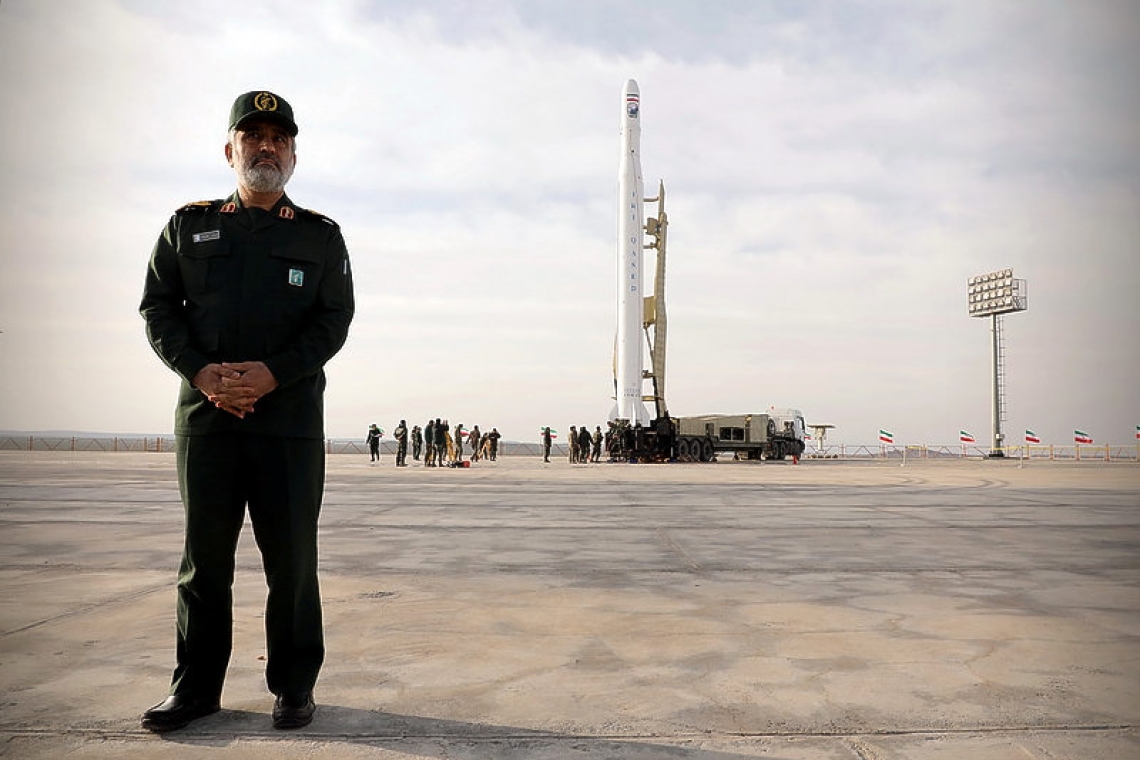DUBAI/WASHINGTON--Iran said on Wednesday it successfully launched the country's first military satellite into orbit, triggering protests from the United States and stoking already high tensions over Tehran's nuclear and missile programmes.
Iran's Revolutionary Guards Corps said the satellite "Noor", or "Light", was orbiting 425 km (264 miles) above the earth's surface. The Pentagon declined to confirm whether Noor was in orbit and operational, saying it would take time to make such an assessment. U.S. Secretary of State Mike Pompeo condemned the launch, however.
Putting a satellite in space would be a major advance for Iran's military following repeated failed launch attempts in recent months. Iran's Guards Corps said it used the Qased, or "Messenger", carrier to launch Noor.
"The three-stage Qased satellite launcher uses a combination of solid and liquid fuels," it said.
The U.S. military says the same long-range ballistic technology used to put satellites into orbit could also allow Tehran to launch longer-range weapons, perhaps someday including nuclear warheads.
"It went a very long way ... which means, it has the ability, once again, to threaten their neighbours, our allies, and we want to make sure they can never threaten the United States," U.S. Air Force General John Hyten, vice chairman of the Joint Chiefs of Staff, told a Pentagon news briefing.
Tehran denies U.S. assertions that such activity is a cover for ballistic missile development and says it has never pursued the development of nuclear weapons.
A U.N. resolution in 2015 "called upon" Iran to refrain for up to eight years from work on ballistic missiles designed to deliver nuclear weapons following an agreement with six world powers. Some states said the language did not make it obligatory. On Wednesday, Pompeo said the launch was inconsistent with the U.N. resolution.
"I think every nation has an obligation to go to the United Nations and evaluate whether this missile launch was consistent with that Security Council resolution," Pompeo said at a news conference.
"I don't think it remotely is, and I think Iran needs to be held accountable for what they have done," he added.
President Donald Trump's administration in May 2018 withdrew from the 2015 accord and reimposed sanctions on Iran. Trump said the deal, designed to put curbs on Iran's nuclear programme in exchange for Tehran halting its sensitive nuclear work, did not include restrictions on Iran's ballistic missile programme and support for its proxies in the Middle East.
Iranian TV footage showed the satellite carrier was inscribed with a verse of the Koran that Muslims often recite when travelling: "Glory to Him who has subjected this to us, as we could never have done it by our own efforts".







